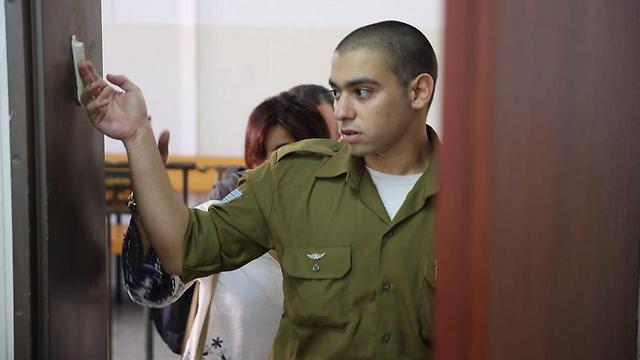Op-ed: According to IDF principles, a soldier will not be prosecuted for an operational error, regardless of the gravity of its results. However, that does not mean that he should be backed by the IDF and defense establishment.
The Elor Azaria affair is still making headlines. Last week, Defense MinisterAvigdor Lieberman said that even if it turns out that the soldier made a mistake when he shot an already-neutralized Palestinian terrorist to death in Hebron, he should be backed. What is backing, who should be backed, how will the backing be expressed and what does backing have to do with avoiding prosecution?
The Israel Defense Forces is supposed to operate under four principles. First, a soldier will not be prosecuted for an operational error, regardless of the gravity of its results. That does not mean that he will be backed. There have been many cases in which officers were dismissed following a serious operational failure. They were not backed but they were not prosecuted either, as their mistake was not caused by a criminal intention or a desire to violate orders. Avoiding prosecution and backing are, therefore, not the same thing.

Second, despite what I wrote in my previous piece, the army should be as patient as possible towards good officers or soldiers who were responsible for an operational failure. Too many dismissals following operational failures are a mistake and could negatively affect morale in the army and could even cause commanders to be afraid to take initiative. Moreover, many mistakes have been the result of complacency. Someone who has already experienced a failure personally will avoid repeating the mistake, as compared to others.
This was well understood by one of the greatest military leaders of the 20th century, and one of the toughest, Georgy Zhukov. This man, who was responsible for most of the Russians’ great victories in World War II, confronted Soviet leader Joseph Stalin in November 1941. Stalin wanted to dismiss and even execute General Konev for his failure to defend the Moscow front. Zhukov wanted Konev to be his deputy, and managed to convince Stalin by saying that it would be better to have a person who had already learned from his mistakes in the senior position than someone else who would repeat them.
Third, regardless of a command procedure (dismissal or no dismissal), a soldier is not prosecuted if he made a judgment error or read the situation wrong and acted accordingly – as long as the operational investigation finds that the soldier did not have any ulterior motives.
Fourth, a soldier is not prosecuted just because he acted against orders. Moreover, we even expect a soldier to act against orders under certain circumstances. Here’s a trivial example: A soldier is sent with a vehicle from the base to deliver equipment to a unit engaged in a training session. He is given explicit orders to drive straight, not to make any stops and to reach his destination by 12 pm. On his way, he witnesses a serious road accident, sees a vehicle lying on its roof at the side of the road and hears people screaming inside. The soldier looks at his watch and realizes that if he stops to help the passengers, he will both violate the order he received (not to make any stops) and arrive late. Nonetheless, he is expected to act against the orders and help rescue the injured.
The fundamental justification for deviating from an explicit order and acting against it is based on one consideration: The soldier must ask himself whether, according to his best judgment, the commander who gave him the mission would have allowed him to rescue the injured or stuck to the initial mission had he been present at the scene of the accident. If it seems reasonable to him that his commander would have changed his orders in that case, then it is not just his right to violate the order, but his duty, and he will clearly not be prosecuted.
That is one of the weak points in Elor Azaria’s arguments. He cannot argue that what he did was what he thought his commanders would have expected him to do, as his commander had been present during the incident. He had the option of asking him, but refrained from doing so.
As reported by Ynetnews
